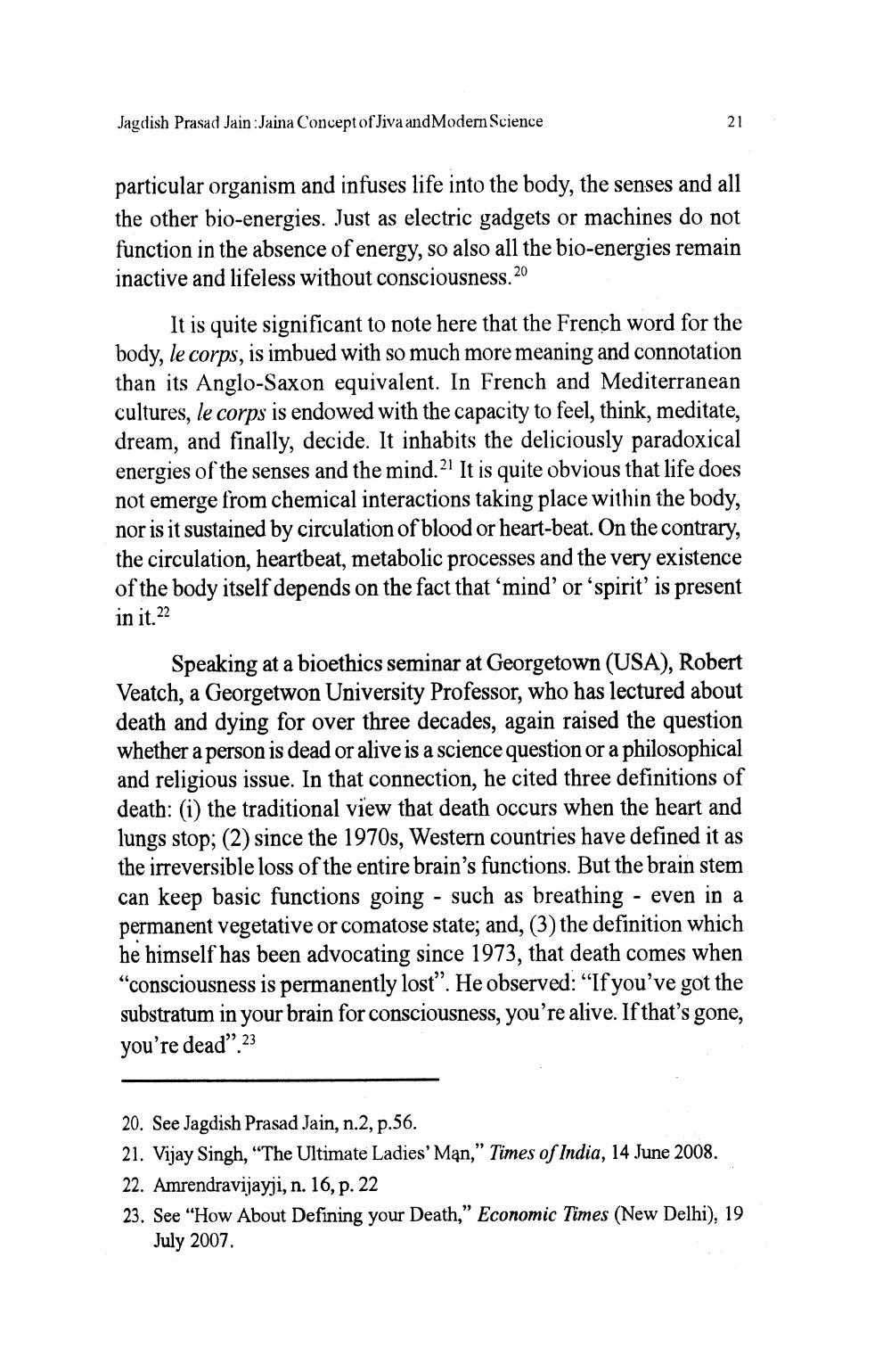________________
Jagdish Prasad Jain :Jaina Concept of Jiva and Modern Science
particular organism and infuses life into the body, the senses and all the other bio-energies. Just as electric gadgets or machines do not function in the absence of energy, so also all the bio-energies remain inactive and lifeless without consciousness.20
It is quite significant to note here that the French word for the body, le corps, is imbued with so much more meaning and connotation than its Anglo-Saxon equivalent. In French and Mediterranean cultures, le corps is endowed with the capacity to feel, think, meditate, dream, and finally, decide. It inhabits the deliciously paradoxical energies of the senses and the mind. 21 It is quite obvious that life does not emerge from chemical interactions taking place within the body, nor is it sustained by circulation of blood or heart-beat. On the contrary, the circulation, heartbeat, metabolic processes and the very existence of the body itself depends on the fact that ‘mind' or 'spirit' is present in it.22
Speaking at a bioethics seminar at Georgetown (USA), Robert Veatch, a Georgetwon University Professor, who has lectured about death and dying for over three decades, again raised the question whether a person is dead or alive is a science question or a philosophical and religious issue. In that connection, he cited three definitions of death: (i) the traditional view that death occurs when the heart and lungs stop; (2) since the 1970s, Western countries have defined it as the irreversible loss of the entire brain's functions. But the brain stem can keep basic functions going - such as breathing - even in a permanent vegetative or comatose state; and, (3) the definition which he himself has been advocating since 1973, that death comes when "consciousness is permanently lost”. He observed: “If you've got the substratum in your brain for consciousness, you're alive. If that's gone, you're dead”. 23
20. See Jagdish Prasad Jain, n.2, p.56. 21. Vijay Singh, “The Ultimate Ladies' Man," Times of India, 14 June 2008. 22. Amrendravijayji, n. 16, p. 22 23. See “How About Defining your Death,” Economic Times (New Delhi), 19
July 2007.




